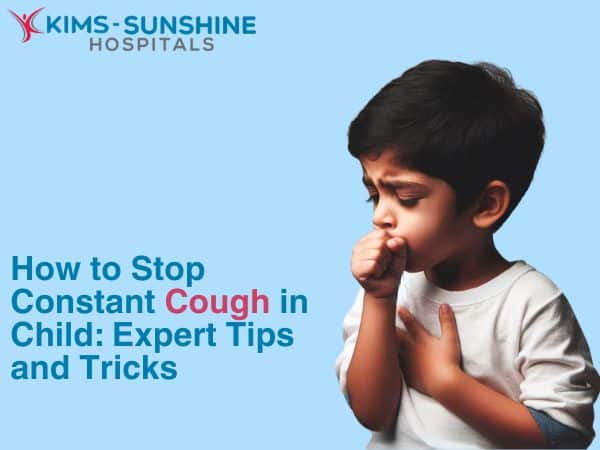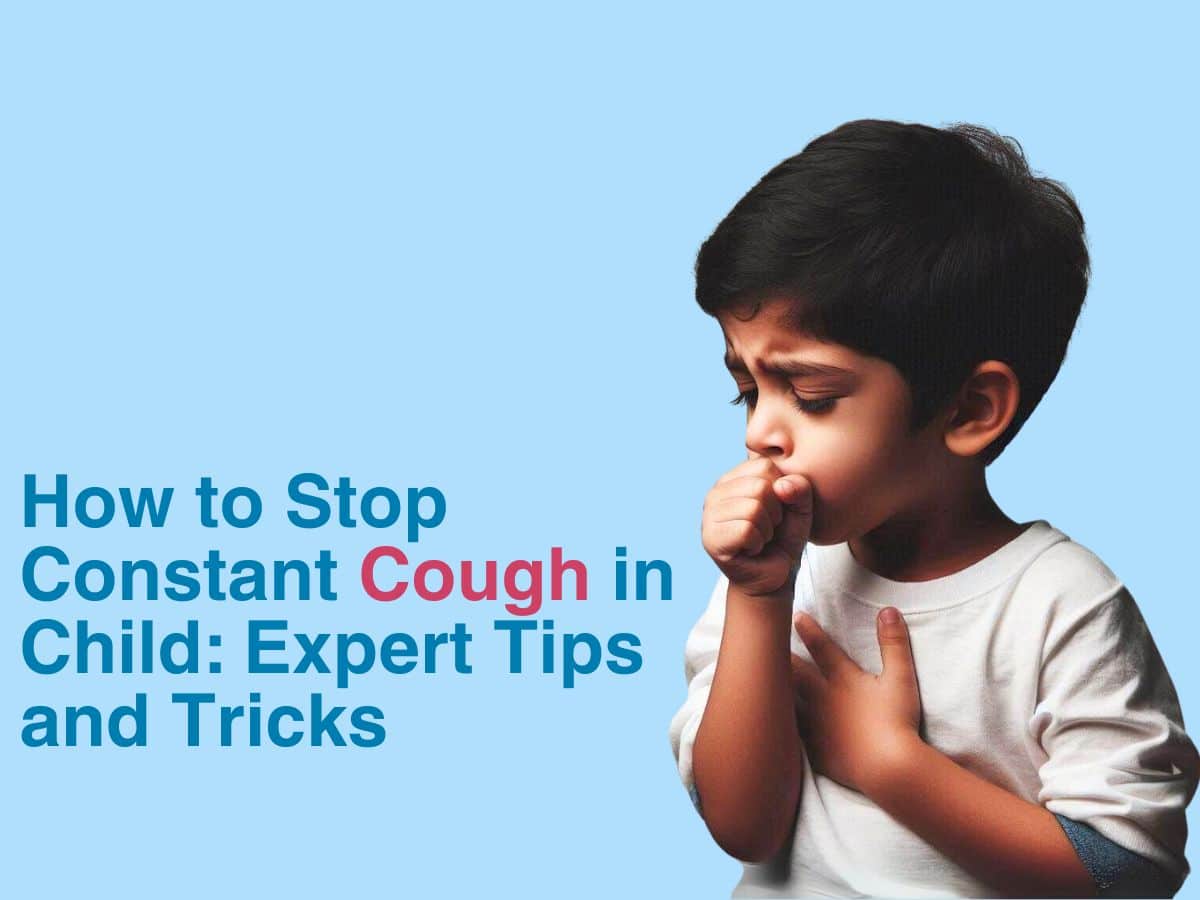
How to Stop Constant Cough in Child: Expert Tips and Tricks

A persistent cough in children can be distressing not only for the child but also for the parent.
Coughing is a natural body function that helps clear airways, a persistent cough can disrupt sleep and affect daily activities.
A continuous cough can also be a symptom of some underlying health issues.
In this blog, we’ll explore effective strategies and home remedies to help soothe your child’s cough, as well as when it’s time to consult a doctor.
Natural Remedies for Constant Cough in Children
Honey: Nature’s Cough Suppressant
How to use honey to stop a child’s cough: Honey is a time-tested remedy for coughs, backed by scientific evidence. For children over 1 year old, try giving 1-2 teaspoons of honey before bedtime. The natural antibacterial properties of honey can help soothe the throat and reduce coughing.
Caution: Never give honey to infants under 1 year due to the risk of botulism.
Hydration is Key
Encourage your child to drink plenty of fluids. Water, herbal teas, and warm broths can help thin mucus and soothe the throat, reducing cough frequency.
Steam Inhalation
Create a steamy environment in the bathroom by running a hot shower. Sit with your child in the bathroom for 10-15 minutes, allowing them to breathe in the moist air to help loosen congestion.
How to Soothe a Persistent Cough in Kids
Elevate the Head During Sleep
For nighttime relief, slightly elevate your child’s head with an extra pillow. This can help reduce postnasal drip and minimize coughing episodes during sleep.
Chest Rub
Apply a small amount of vapor rub on your child’s chest and back before bedtime. The menthol and eucalyptus oils can help open airways and provide comfort.
Effective Home Treatments for a Child’s Chronic Cough
Humidifier Benefits for Kids with a Constant Cough
Using a humidifier in your child’s room can significantly alleviate coughing, especially during dry seasons or in air-conditioned environments. The added moisture in the air helps soothe irritated airways and loosen mucus.
Saltwater Gargle
For older children, gargling with warm salt water can help reduce throat inflammation and provide temporary relief from coughing.
Expert Tips to Manage a Child’s Nighttime Coughing
Establish a Bedtime Routine
Create a calming bedtime routine that includes relaxation techniques. This can help reduce stress-induced coughing and promote better sleep.
Use a Wedge Pillow
A wedge pillow can help keep your child’s upper body slightly elevated, reducing nighttime coughing caused by postnasal drip.
Best Ways to Relieve a Child’s Dry Cough at Home
Offer Warm Liquids
Warm liquids like herbal tea with honey (for children over 1 year) or warm water with lemon can help soothe the throat and provide relief from dry coughs.
Use a Cool-Mist Vaporizer
A cool-mist vaporizer can add moisture to the air without the risk of burns associated with hot-steam vaporizers.
How to Stop a Child’s Cough Without Medicine
Encourage Rest
Adequate rest allows the body to focus on healing. Ensure your child gets plenty of sleep and relaxation time.
Practice Good Hygiene
Teach your child proper hand-washing techniques and cough etiquette to prevent the spread of infections that can cause coughing.
When to See a Doctor for a Child’s Persistent Cough
While many coughs can be managed at home, it’s important to know when professional medical advice is necessary. Consult a pediatrician if:
- The cough persists for more than 2-3 weeks
- Your child has difficulty breathing or is wheezing
- The cough is accompanied by a high fever
- Your child seems unusually lethargic or shows signs of dehydration
- There’s blood in the mucus or your child is coughing up blood
- The cough is interfering with daily activities or sleep
Conclusion
Managing a child’s constant cough requires patience, care, and a combination of natural remedies and home treatments. By implementing these expert tips and tricks, you can help soothe your child’s cough and promote faster recovery. Remember, while these strategies are often effective, it’s crucial to monitor your child’s condition closely and seek medical attention when necessary. With the right approach, you can help your little one find relief and return to their happy, healthy self.
Frequently Asked Questions

Dr. Shalini Mehrotra
MBBS, DCH
Consultant Paediatrician






